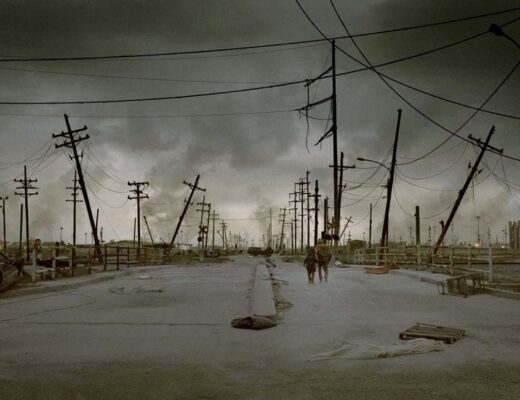The needle-eye gateway of the coming-of-age film is a near-obligatory rite of passage for the “emerging” Canadian director. Accordingly, Trevor Anderson sets his debut feature, after over a decade of shorts, in his own nostalgic rearview of 1987, and the restlessly titled Before I Change My Mind begins with a hacky pariah opening somewhere adjacent to the John Hughes of Ferris Bueller’s Day Off. It’s to the film’s credit, then, that this is a feint. The nostalgia is tempered by specifics: protagonist Robin (Vaughan Murrae) lives in a barely furnished post-divorce (or worse) home where they appear to have two choices of activity: lying on a bedroom floor or sitting in a living room; the euphoric high-point of the school year is a band trip to West Edmonton Mall that ends with Robin and a friend lost, sitting on the ground next to a vending machine; and neither Robin nor their closeted crush Carter resolve neatly into victims or perpetrators of cruelty.
This isn’t to say Before I Change My Mind is accomplished, exactly. Anderson has previously said he wants to avoid the two poles of “trauma porn” and “inspiration porn” in his work, and the film seems to be overly conscious of these points, avoiding exploitive extremes while still remaining in an easily parsable narrative mode. Most overtly, like many a mainstream American comedy of the 2010s, space is made for a staged revisionist response to what high school ought to have been like if the social order was rearranged: Anderson himself appears as a drama director, cool, wise, and with a slightly self-consciously inflated ego. His play within the world of the film, a camp musical dubbed Mary Magdalene: Video Star, provides an extracurricular magnet for the outcast ensemble of the film to gather around and feel safe within, no mean feat in late-’80s Edmonton, Alberta. It also allows a stage for the musical desires of the director to briefly play out, even as the rest of the film is safely within the bounds of the adolescent genre.
Perhaps the most notable feature of Anderson’s film, then, is how it positions Robin. Despite their appearance as a sympathetic protagonist, we are not given a strong external perspective (like their father or a teacher), nor, aside from some brief, apparently searing-to-the-touch VHS-filtered flash-memories of their mother, an internal one. It would be too much to even say that Robin is estranged from their subjectivity: instead, Anderson might be viewed in contrast to a filmmaker like Stephen Cone, who has similarly worked with unproven actors and complex, ensemble-driven narratives. Where Cone thrives on diffuse immersion into the evangelical milieus of heavily guarded suburban families, and stumbles whenever he inserts stakes-raising plot developments, Anderson seems to have little interest in demanding much from his actors, and keeps things unbalanced by allowing plot elements to build in conventional ways, as long as they don’t resolve in the same fashion. Robin is only as meaningful as their plot — their hidden experience and backstory are not this film’s concerns.
This can also be seen with Robin’s father, played by Winnipeg filmmaker Matthew Rankin (The Twentieth Century), whose narrative only incidentally overlaps with Robin’s. In a TV plot, his dating misadventures would echo or contrast Robin’s, and dovetail or at least meet up in the end — none of this is the case. Anderson seems to want to afford each of his characters a kind of egalitarian autonomy, though not strictly. The strongest of the child actors in the film, Lacey Oake (who plays the star of the stage pageant, Izzy) brings the film closest to the lesson-based middle-ground the coming-of-age drama often gravitates toward. She is poised and, when Carter violently lashes out, or Robin is overwhelmed and shuts down, knows the right things to say and do. In this way, Anderson ultimately shapes Before I Change My Mind’s narrative to be messy without being overly provocative; it exists in an intentionally compromised state, where all of its pieces show signs of volatility, but the desired output is, like Robin’s art sketches, a kind of loving caricature to be invested with enormous meaning, regardless of the finer details of the form it takes.
Published as part of Locarno Film Festival 2022 — Dispatch 2.







